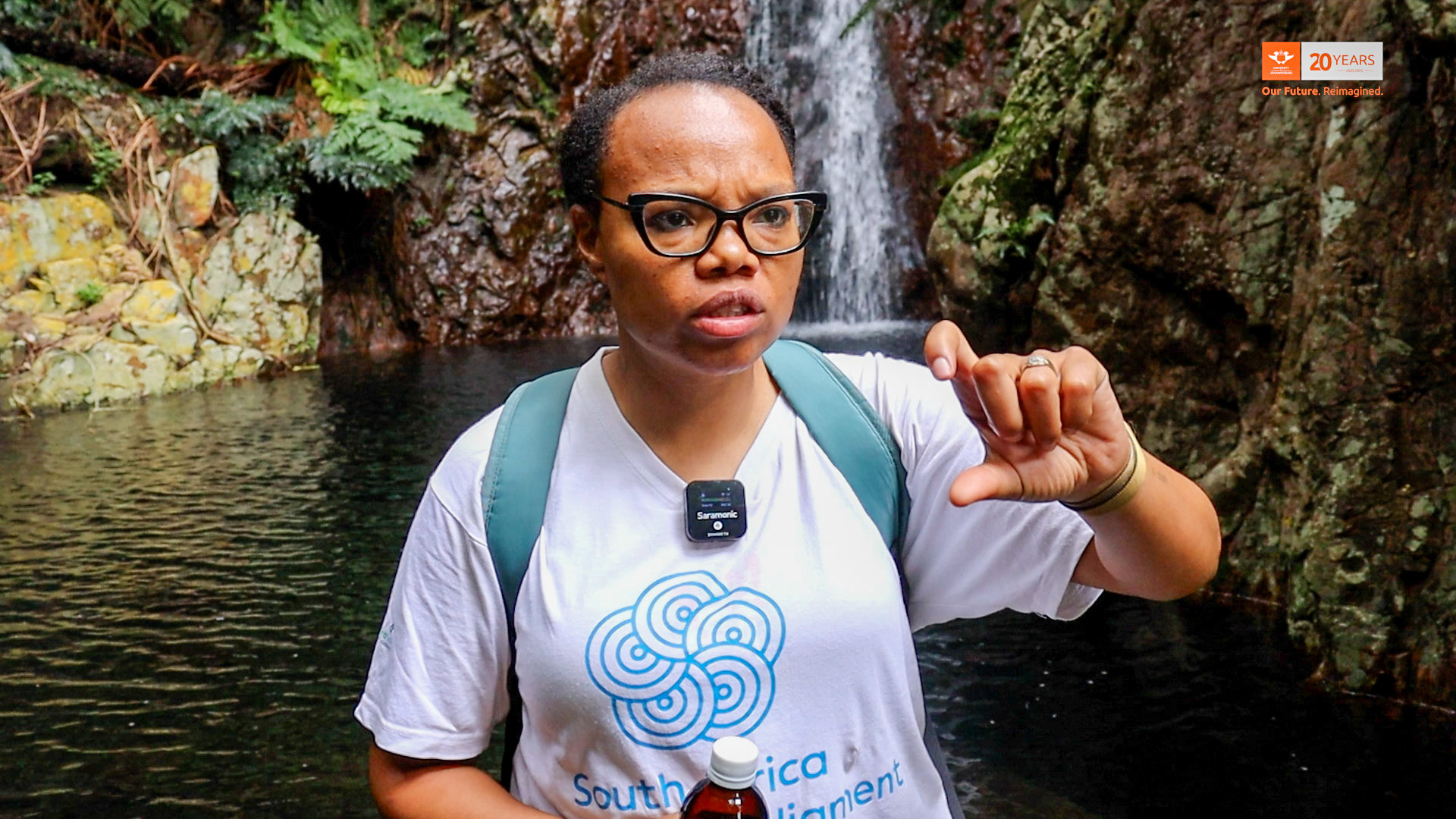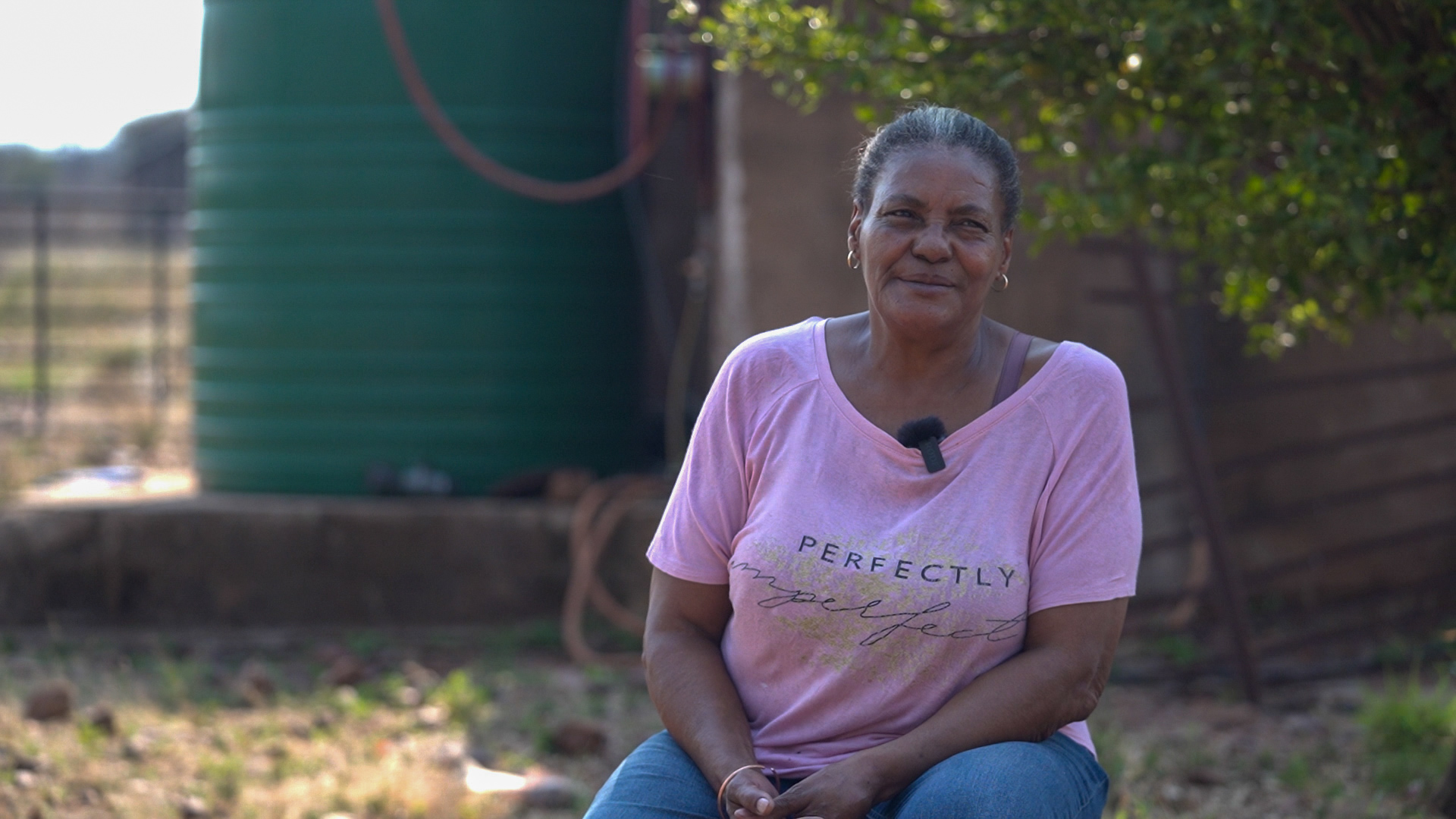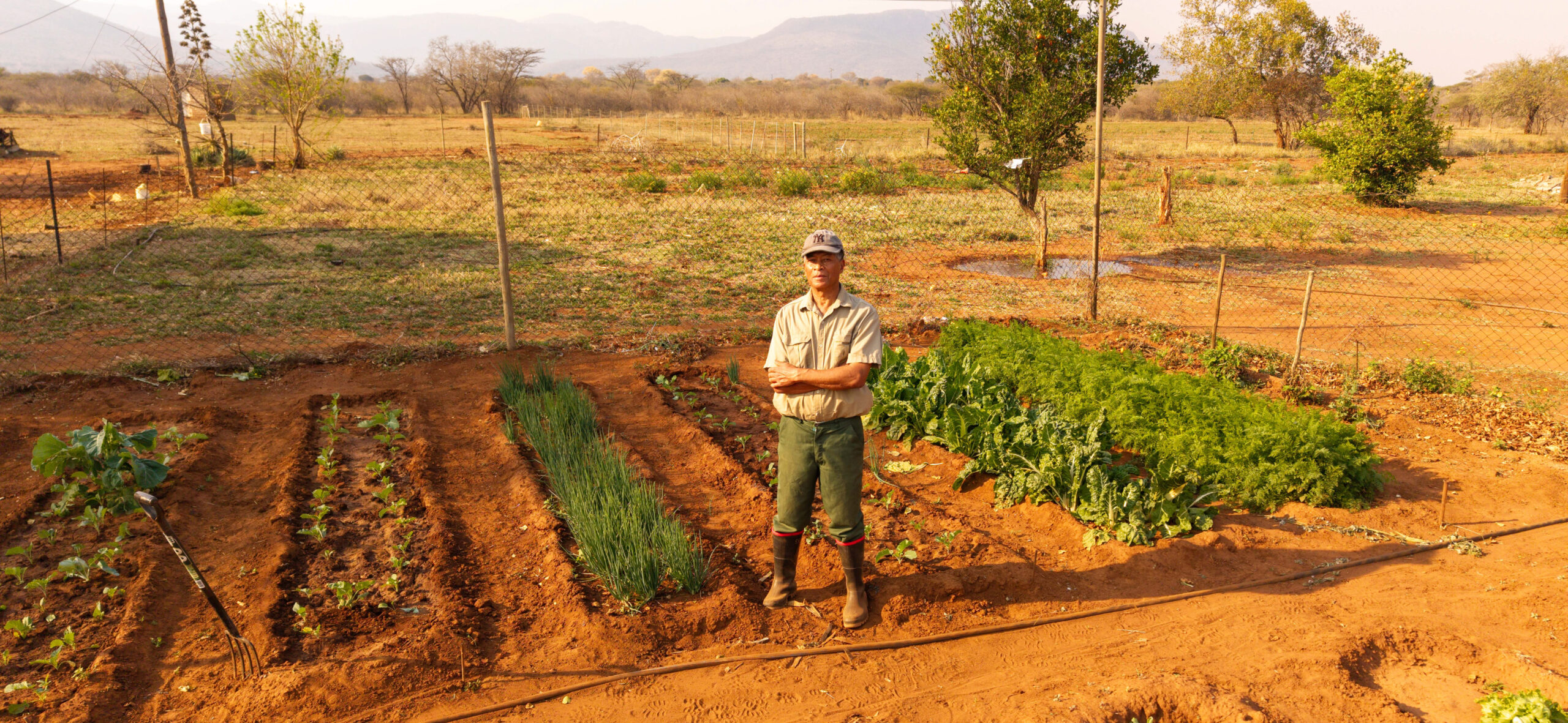In the heritage village of Buysdorp, Limpopo, water has always been scarce. Families rely on springs, boreholes, and deliveries that are often inconsistent or unsafe. For years, villagers drank without knowing whether their water was healthy — as long as no one fell ill, life carried on.

Now, a University of Johannesburg (UJ) research team is helping change that story. Led by Dr Lee-Ann Sade Modley, Senior Lecturer in Environmental Management and Deputy Head of Department in the Faculty of Science, the GES 4.0 Buysdorp Water Security Project is reshaping how communities think about, test, and preserve their most precious resource.
“We had no idea whether our water was healthy or not,” says George Izak Chalmers, a lifelong Buysdorp resident. “Dr Lee and her team from UJ gave us hope. They came with knowledge on purification and water quality, teaching us how to manage and preserve our spring for future generations. Most important, we now know our water is safe for human consumption. Water is life, and we are deeply grateful.”
An urgent need in a water-stressed region
 Nestled in the Vhembe District, Buysdorp is a small heritage settlement with a proud history — but one that faces chronic water scarcity. Recognising the urgency of the situation, UJ researchers launched this flagship project under the Global Excellence and Stature 4.0 (GES 4.0) framework.
Nestled in the Vhembe District, Buysdorp is a small heritage settlement with a proud history — but one that faces chronic water scarcity. Recognising the urgency of the situation, UJ researchers launched this flagship project under the Global Excellence and Stature 4.0 (GES 4.0) framework.
The approach is not simply scientific. It is interdisciplinary, community-embedded research — combining hydrological studies, environmental management, health assessments, and participatory storytelling. By working alongside residents, the project co-produces knowledge that matters.
Testing the water
In its second quarter, the team put Buysdorp’s water under the microscope. Samples from springs and boreholes were analysed for microbial contamination, turbidity, and chemical pollutants. The findings provided baseline data that guide both risk management and community awareness campaigns.
“The scientific findings are informing not only our environmental response, but also how we engage with the community about health and safe water practices,” explains Dr Modley.
Alongside water testing, hydrogeologists are assessing the long-term feasibility of groundwater extraction as a sustainable supply for the village. Aquifer mapping, borehole siting, and environmental impact assessments are all part of the process — always guided by UJ’s commitment to ethical, inclusive research.
Knowledge preserved, knowledge shared

At the heart of the project is a community-first approach. Residents are sharing Indigenous Knowledge about rainfall, soil health, seasonal indicators, and spring management. This wisdom is being digitally preserved and translated into animated storytelling tools that make science accessible to all ages.
“What makes this project special is its integration of Indigenous Knowledge Systems with animated science communication,” says Dr Modley. “We’re not just measuring water quality — we’re co-creating solutions with the people who live with the consequences.”
Youth programmes are also being introduced through schools, ensuring that children grow up with water literacy, stewardship values, and the digital tools to carry their community’s heritage into the future.
Building trust, shaping futures

For Buysdorp, the project is more than research — it is a bridge of trust. Families now have data confirming that their spring water is safe, while also learning purification and conservation techniques. The project strengthens intergenerational knowledge exchange: elders share traditions, youth adopt science and technology, and both come together in stewardship.
“This is what UJ’s research ethos looks like — transformative, inclusive, and future-facing,” says UJ’s Professor Refilwe Phaswana-Mafuya, Deputy Vice-Chancellor: Research and Innovation. “By co-creating solutions with communities, we’re not only solving today’s challenges but building resilience for generations to come.”
Next steps
As the project moves into its next phase, the team will:
- Continue groundwater viability mapping
- Roll out school-based youth engagement programmes
- Finalise digital water safety and storytelling tools
- Produce a policy brief for local and provincial authorities
- Develop a documentary to capture Buysdorp’s heritage and resilience
Watch the Buysdorp documentary
A model for locally rooted innovation
The Buysdorp Water Security Project is one of UJ’s GES 4.0 flagship initiatives, aligning with South Africa’s development priorities and the UN Sustainable Development Goals (SDGs). It demonstrates how cutting-edge science, Indigenous Knowledge, and community partnerships can converge to solve urgent social challenges.
For the people of Buysdorp, it means something even simpler: the knowledge that their water is safe today — and can be protected tomorrow.



